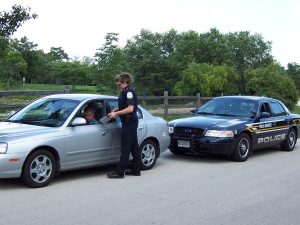 Here’s a criminal case from 2012, just recently resolved. It involved driving under the influence and a tragic fatality, but the drug in question was marijuana, not alcohol or a prescribed medication.
Here’s a criminal case from 2012, just recently resolved. It involved driving under the influence and a tragic fatality, but the drug in question was marijuana, not alcohol or a prescribed medication.
It brought to mind something that happened last time I was called for jury duty. Prosecutors asked the assembled candidates if they would be able to vote to convict if cannabis were the only drug involved. Most in the jury pool admitted they weren’t certain. Does marijuana really impair driving? they wanted to know.
This situation was common before states established blood levels and testing procedures for alcohol intoxication. The levels themselves were determined through experiment, and resulted in the .10 and then .08 thresholds found in most areas (Utah just set the bar at .05). It isn’t a perfect system but as the saying goes, it’s proved close enough for government work.
Today, with the growing popularity of medical marijuana and the prospect of future legalization, we should anticipate many more cases involving cannabis. In some, the offense may actually have occurred prior to liberalization of the law, which could further confuse things.
A related issue: cannabis-positive drug tests as a factor in probation and parole violations. For years, a pot-positive test was likely to lead to revocation and perhaps return to jail. That may well change. The reality is that marijuana remains in the system for an extended period and shows up in drug tests when other drug use, perhaps more serious, has gone undiscovered.
I don’t think there’s a great deal of disagreement about the potential for cannabis to impair driving. Without an accepted standard and a reliable roadside test, however, that won’t be much help in a courtroom. It’s one thing to demonstrate that someone was under the influence of a drug, and another to prove they were impaired while operating a motor vehicle. That’s the problem faced by the jury in our example, and frankly, I think they did about as well as they could, in the circumstances.
Changes in the law or its procedures often catch the public unaware, leading to complaints. As one repeat offender put it: “I didn’t cross the line, man. The line crossed me.”










